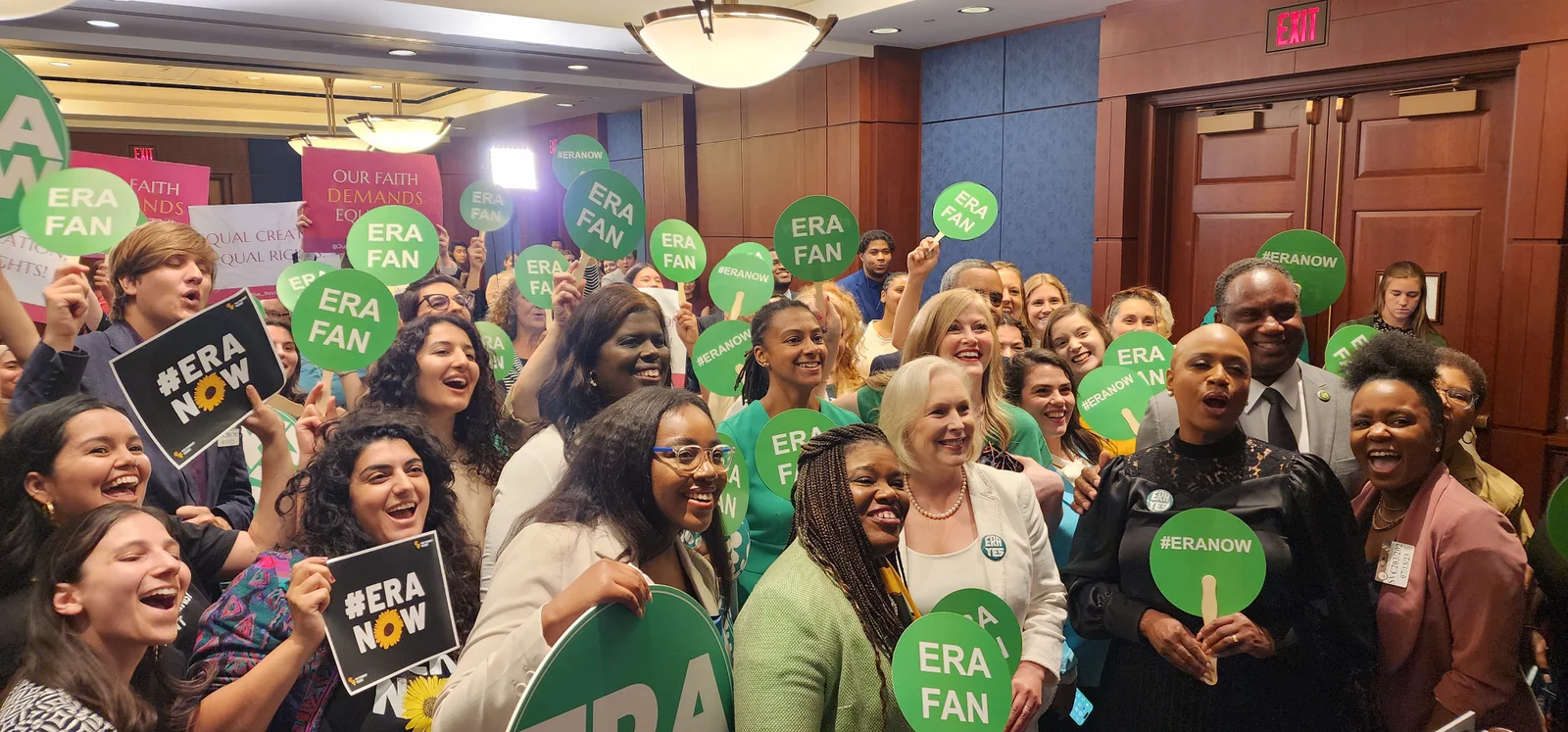22222222Latina Equal Pay Day: ERA Now
Latina Equal Pay Day is a reminder of the ongoing wage disparities faced by Latinas in the United States. Falling on October 5 this year, Latina Equal Pay Day symbolizes the extended period that Latinas must work to catch up to their white, non-Hispanic male counterparts in terms of earnings the previous year. On average, Latinas earn just 52 cents for every dollar earned by white, non-Hispanic men and It takes Latinas a year and 10 months to catch up to the earnings of their male counterparts. This disparity is rooted in systemic issues related to segregation, discrimination, and limited access to opportunities.
Empowering Latinas begins with publishing the Equal Rights Amendment so that these disparities are a thing of the past.
The ERA: A tool to fight pay disparity

The Equal Rights Amendment, initially introduced in Congress in 1923. It finally passed in 1972, and was officially ratified and ready for publication in 2020 when Virginia became the 38th state to ratify the amendment. The ERA states that “Equality of rights under the law shall not be denied or abridged by the United States or by any State on account of sex.” Its significance lies in its potential to make gender-based discrimination unconstitutional and to provide a solid legal foundation for addressing gender inequalities in various spheres of society, including employment and equal pay.
Why the ERA Matters for Latina Equal Pay
Once published the ERA would provide comprehensive legal protection against sex-based discrimination. This protection would extend to wage disparities, ensuring that Latinas receive equal pay for equal work. With this constitutional amendment, the fight for pay equity gains an influential ally.
Latinas face unique challenges, including language barriers and immigration status issues. The ERA would serve as a powerful tool to overcome these obstacles. The ERA has also the potential to reshape societal norms and cultural expectations. It sends a clear message that gender equality is not negotiable, fostering a culture where Latina women are valued and rewarded fairly for their contributions.
Publishing the Equal Rights Amendment sends a clear message that gender equality is not negotiable, fostering a culture where Latina women are valued and rewarded fairly for their contributions.

Achieving pay equity for Latinas is not just a matter of fairness; it has far-reaching economic implications. When Latinas are paid fairly, they have more financial stability, contribute more to the economy, and better support their families.
As we observe Latina Equal Pay Day, let us not only acknowledge the challenges but also recognize the immense potential for change. By championing the ERA and supporting initiatives that promote equality for Latinas and for all women, we can pave the way for a more just and inclusive society where all individuals are truly valued and treated equally, regardless of their gender, ethnicity, or background.
